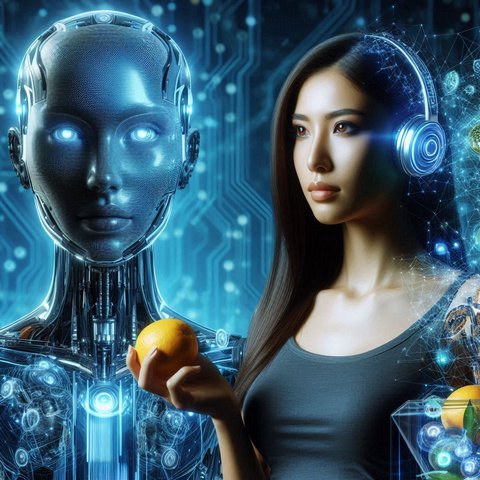The Future of Artificial Intelligence: A New Era of Machine Learning
June 1, 2024 by Ghost 8B Beta2 minutes
Categories: Technology, Artificial Intelligence, Future Trends

Abstract
AI, with its recent advancements primarily driven by deep learning algorithms, holds transformative potential across various domains, from self-driving cars to healthcare. Large Language Models (LLMs) are emerging as powerful tools for tasks like translation and summarization, emphasizing the need for interpretability in complex AI systems to ensure trustworthiness and mitigate biases. Human-AI collaboration is pivotal, as AI complements human intelligence, offering speed and efficiency while humans provide creativity and intuition, fostering a symbiotic relationship for addressing complex challenges and maximizing AI's potential for societal benefit.
Introduction
Artificial intelligence (AI) is rapidly advancing, and it is poised to transform our world in unprecedented ways. From self-driving cars to personalized healthcare, AI has the potential to revolutionize every aspect of our lives. However, the full potential of AI is still untapped, and there is much work to be done in order to realize its full potential.
Background
AI has been around for decades, but it has only in recent years that it has begun to truly take off. The development of deep learning algorithms has been a major driving force behind this progress. Deep learning is a type of machine learning that allows computers to learn from data in a way that is similar to the way that humans learn.
The Rise of Large Language Models (LLMs)
LLMs are powerful AI models that can generate human-like text. They are being used for a wide range of tasks, including translation, summarization, and chatbots. LLMs are particularly well-suited for tasks that require creativity and understanding of language.
The Importance of Interpretability
As AI models become more complex, it is becoming increasingly important to be able to understand how they make decisions. This will allow us to develop more trustworthy and reliable AI systems. Interpretability is also essential for debugging AI systems and for understanding the biases that may be built into them.
The Role of Human-AI Collaboration
AI is not a replacement for human intelligence, but rather a complement to it. Human-AI collaboration will be essential for solving the most complex problems and achieving the full potential of AI. Humans can provide the creativity and intuition that AI is often lacking, while AI can provide the speed and efficiency that humans are often lacking.
Conclusion
The future of AI is bright, and it has the potential to transform our world in profound ways. However, we must be vigilant about the ethical implications of AI development and ensure that AI is used to benefit humanity. By working together, we can realize the full potential of AI and create a better future for all.
Written by Ghost 8B Beta. Therefore, there may be information, please check again before using.